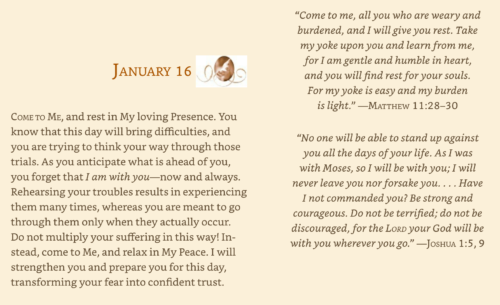Disrupting the Status Quo
Richard Rohr describes how speaking truth to power is an essential part of the prophet’s mission:
One of the gifts of the prophets is that they evoke a crisis where one did not appear to exist before their truth-telling. In the 1960s, Martin Luther King Jr. was blamed for creating violence—but those who had eyes to see and were ready to hear recognized, “My God, the violence was already there!” Structural violence was inherent in the system, but it was denied and disguised. No one was willing to talk about it. Martin Luther King Jr., Rosa Parks, and others said, “We’re going to talk about it.”
Prophets always talk about the untalkable and open a huge new area of “talkability.” For those who are willing to go there, it helps us see what we didn’t know how to see until they helped us to see it. That’s how we begin to recognize a prophet—there is this widening of seeing, this deepening of a truth that was always there.
Prophets generate a crisis, so it’s almost understandable why they’re usually called troublemakers and so often killed. They generate the crisis because while everybody else is saying the emperor is beautifully clothed, they are willing to say, “No, he’s naked.” We’re not supposed to say that the emperor has no clothes!
It’s the nature of culture to have its agreed-upon lies. Culture holds itself together by projecting its shadow side elsewhere. That’s called the “scapegoat mechanism.” René Girard, Gil Bailie, and others have pointed out that the scapegoat mechanism is the subtext of the entire biblical revelation. It’s the tendency to export our evil elsewhere and to hate it there, and therefore to remain in splendid delusion. If there isn’t a willingness to be critical of our country, our institution, and ourselves, we certainly can’t be prophets. [1]
When the prophet is missing from the story, the shadow side of things is always out of control, as in much of the world today, where we do not honor wisdom or truth.
It seems the prophet’s job is first to deconstruct current illusions, which is the status quo, and then reconstruct on a new and honest foundation. That is why the prophet is never popular with the comfortable or with those in power. Only a holy few have any patience with the deconstruction of egos and institutions.
The prophets are “radical” teachers in the truest sense of the word. The Latin radix means root, and the prophets go to the root causes and root vices and “root” them out! Their educational method is to expose and accuse with no holds barred. Ministers and religion in general tend to concentrate on effects and symptoms, usually a mopping up exercise after the fact. As someone once put it, we throw life preservers to people drowning in the swollen stream, which is all well and good—but prophets work far upstream to find out why the stream is swollen in the first place. [2]
Big Picture Thinkers
In a 2006 CAC conference, Richard Rohr identified the prophet as one who places issues in the context of the “big picture”:
What is a prophet? Let me try this as a definition: one who names the situation truthfully and in its largest context. When we can name the situation truthfully and in its largest context, it cannot get pulled into interest groups and political expediency. I was preaching in Atlanta, and I went for the first time to the Martin Luther King Jr. exhibit. It’s so obvious that he was a biblical prophet. I stood there and heard the addresses right in his very church, Ebenezer Baptist Church, where they play his preaching constantly. I realized how he was always putting racism and segregation in the big context of the kingdom of God. And then he kept going and came out against the Vietnam War. He is said to have lost at least one-third of his own followers because he placed the issue in too big a frame.
We don’t want the big frame. No one wants the big picture. I’m convinced that Jesus’ metaphor and image for what we would simply call the big picture is the reign of God, or the kingdom of God. That’s Jesus’ way of describing a phrase we used to say in Latin [sub specie aeternitatis] which means, “In light of eternity.” To consider things in light of eternity is a great clarifier. Maybe it comes to us on our death bed, when we think to ourselves, “Is this going to mean anything? Does this really matter? Is this little thing we’re upset about now and taking offense at going to mean anything in light of eternity?” The prophet or prophetess speaks truthfully and in the largest context. [1]
In Martin Luther King Jr.’s “Beyond Vietnam” speech, he spoke from the “big frame” to call for a revolution of values based on love:
This call for a worldwide fellowship that lifts neighborly concern beyond one’s tribe, race, class, and nation is in reality a call for an all-embracing and unconditional love for all [humankind].… When I speak of love I am not speaking of some sentimental and weak response. I’m not speaking of that force which is just emotional bosh. I am speaking of that force which all of the great religions have seen as the supreme unifying principle of life. Love is somehow the key that unlocks the door which leads to ultimate reality. This Hindu-Muslim-Christian-Jewish-Buddhist belief about ultimate reality is beautifully summed up in the first epistle of Saint John: “Let us love one another, for love is of God. And everyone that loveth is born of God and knoweth God. He that loveth not knoweth not God, for God is love.… If we love one another, God dwelleth in us and [God’s] love is perfected in us” [1 John 4:7–8, 12]. Let us hope that this spirit will become the order of the day. [2]
